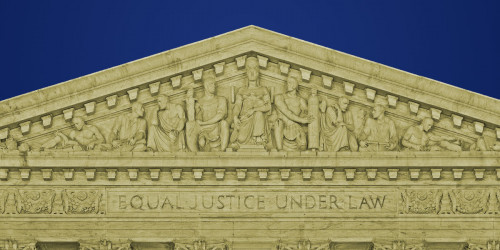San Francisco - The Illinois Court of Appeals today overturned a lower court ruling that had ordered the disclosure of the identity of an anonymous online critic of a political candidate, ruling that the First Amendment prevented such "fishing expeditions" undertaken by "those easily offended by online commentary."
The Electronic Frontier Foundation (EFF) and the Media Freedom and Information Access Clinic (MFIA) at Yale Law School filed a friend-of-the-court brief in the case. While defamatory or other actionable speech may allow for the unmasking of an online speaker, EFF and MFIA argued that the First Amendment requires a heightened standard for unmasking anonymous speakers in order to protect robust debate -- political or otherwise.
"We are pleased that the Court of Appeals overturned the trial court's troubling decision," said EFF Senior Staff Attorney Matt Zimmerman. "The First Amendment provides robust protection for controversial and critical speech. This case demonstrates that critics of political figures and others with power may find themselves on the receiving end of retaliatory legal threats. Today's opinion shows that Illinois courts will defend speakers engaged in lawful speech from improper efforts to 'out' them."
The anonymous critic in this case commented on a story on the website of a suburban Chicago newspaper called the Daily Herald, and engaged in a heated debate with other commenters – including the son of the village trustee candidate in Buffalo Grove, Illinois, who was discussed in the article. The candidate, Lisa Stone, who eventually won her race, asked a state court to order the newspaper to release the critic's name and address without appropriately showing that the statements directed towards her son were defamatory or otherwise illegal. Last year, a lower court granted Stone's pre-lawsuit request for her critic's identity, incorrectly holding that a narrow disclosure to Stone would adequately protect the speaker's First Amendment rights.
The Court today reversed that lower court's opinion, articulating the First Amendment interests at stake: "While the law is clear that there is no right to defame another citizen, we cannot condone the inevitable fishing expeditions that would ensue were the trial court's order to be upheld. Encouraging those easily offended by online commentary to sue to find the name of their 'tormenters' would surely lead to unnecessary litigation and would also have a chilling effect on the many citizens who choose to post anonymously on the countless comment boards for newspapers, magazines, websites and other information portals. Putting publishers and website hosts in the position of being a 'cyber-nanny' is a noxious concept that offends our country's long history of protecting anonymous speech."
"Politicians cannot pry into someone's life just because they've been publicly criticized," said Margot Kaminski, co-founder of MFIA and Executive Director of Yale's Information Society Project. "Because of the enormous potential of abuse, the First Amendment requires showing that there's a legitimate case before using the courts to unmask anonymous speakers. We're pleased the Illinois Court of Appeals protected free speech rights in this case and recognized the potential chilling effect of such fishing expeditions on citizens who choose to post anonymously."
For the full order from the court:
https://www.eff.org/files/filenode/stonevpaddock-opinion-111711.pdf
Contact:
Matt Zimmerman
Senior Staff Attorney
Electronic Frontier Foundation
mattz@eff.org










